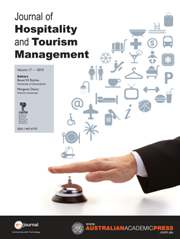Article contents
Insights Into Employing Students in Hospitality Operations: A Study in Nottingham, United Kingdom
Published online by Cambridge University Press: 23 February 2012
Abstract
The article reports on findings from a survey of hospitality employers in Nottingham, United Kingdom. It discusses one aspect of a research project funded by the East Midlands Tourism aimed at exploring the skill sets desired and made available to the local hospitality and tourism economy through students at local colleges and universities. The survey explored employers' motives, experiences and evaluations of employing students in their businesses. The research confirms that often the decision to employ students is ‘to meet the uneven levels of demand for hospitality services’, and in part, ‘to meet the extra demand created by the student economy in Nottingham itself’. During the academic year the two universities in Nottingham generate considerable demand in the local economy through the presence of students who come to study in the city from elsewhere. Furthermore, many employers in hospitality organisations are concerned to recruit casual labour, some of whom happen to be students. In most cases, employers are very satisfied with the contribution that students make, though few consider developing a long-term relationship with them. Consequently, most students are employed in routine unskilled, front-line roles. Few are promoted to supervisory or managerial positions, or considered for long-term employment after graduation.
- Type
- Articles
- Information
- Copyright
- Copyright © Cambridge University Press 2011
- 2
- Cited by


